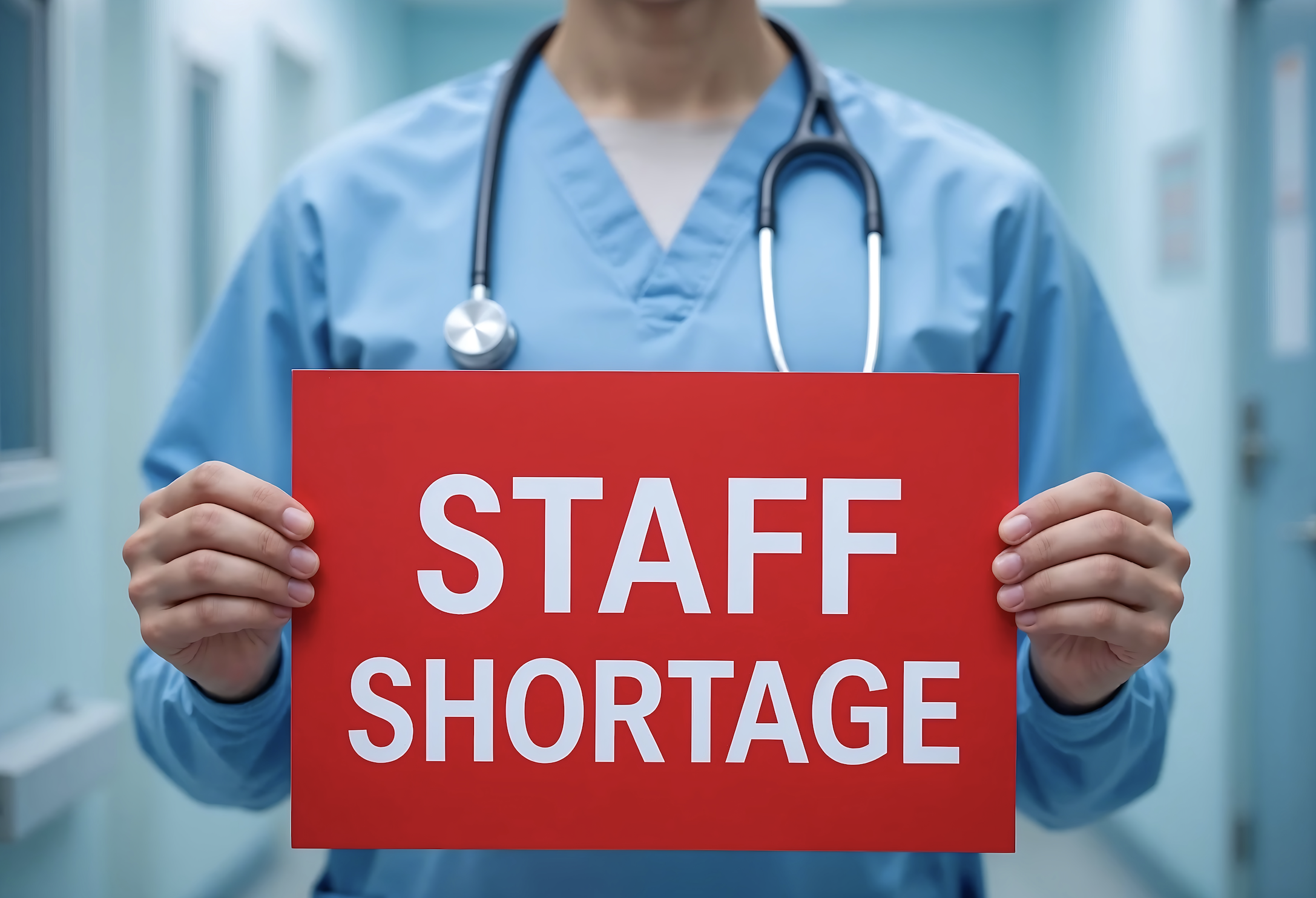
As the U.S. healthcare system braces for the future, workforce challenges are becoming impossible to ignore. With an aging population of U.S. adults and evolving care delivery models, the demand for qualified providers continues to surge, making the role of advanced practice providers (APPs) more valuable than ever.
A Changing Healthcare Workforce
The Association of American Medical Colleges (AAMC) projects that the U.S. could face a physician shortage of 37,800 to 124,000 doctors by 2034. Some reports highlight that the gap could be as high as 180,000 physicians if healthcare access disparities are not fully addressed. This shortage has sparked a growing reliance on APPs — particularly nurse practitioners (NPs) and physician assistants (PAs) — to help meet patient care needs.
Supporting this, forecasts from the Bureau of Labor Statistics project that nurse practitioner jobs are expected to grow by 45% (123,600 jobs) by 2032, making them one of the fastest-growing professions in the country. Physician assistants are also projected to grow rapidly, at a rate of 27%, well above the national average for job growth.
These numbers reflect not only the demand for healthcare services, but also how APPs are stepping up to fill care gaps — especially as the physician shortage intensifies.
The Trend: NPs and PAs Moving Into Specialties
While APPs have long been vital to primary care, there is also a noticeable shift happening in their areas of focus: many are leaving primary care for specialty areas like cardiology, orthopedics, dermatology, critical care, and emergency medicine. Core reasons for this shift include:
- Burnout and workload — Heavy patient panels, short visits, and administrative burdens like electronic health record (EHR) documentation and prior authorizations make primary care a more challenging environment for APPs to do their jobs.
- Better compensation — Higher salaries, signing bonuses, and more predictable hours are drawing APPs to specialties.
- Clearer scope of practice — Specialties often allow APPs to focus deeply on one area rather than managing a broad array of conditions. This approach to the depth of knowledge versus breadth is appealing for working APPs.
- Work-life balance — Many specialty roles offer shift work, outpatient-only options, or no call requirements that are amenable to APPs of all ages and lifestyles.
- Procedural opportunities — APPs in specialties often get to work with advanced technologies and assist with or perform procedures.
- Stronger support systems — Specialty practices often provide more robust team-based models, reducing isolation and workload stress.
- Formal transition programs — Fellowships, transition to practice training and structured onboarding make entering specialties easier and more appealing.
Impacts and Ways to Mitigate Them
This exodus of APPs from primary care is exacerbating physician shortages, particularly in rural and underserved communities. Health systems are under pressure to better support and retain APPs in primary care. Key retention strategies they can apply include:
- Reducing administrative burdens and improving EHR usability
- Expanding primary care APP residency and mentorship programs
- Investing in team-based care models that support APPs
- Fostering professional development and growth opportunities within primary care
ThriveAP can help bring all of these concepts to life.
ThriveAP offers live, online, and asynchronous Transition to Practice Programs in over nine clinical specialties, all with opportunities for one-on-one coaching and professional development to support APPs in their first years of practice. ThriveAP has also launched an Upskilling offering, which includes nine specialty-specific, asynchronous, clinical courses designed to support the learning tracks for more experienced APPs.
Our goal is to empower clinicians through accelerated ramp up time & skill development, resulting in improved proficiency, productivity, and confidence, all of which support a stronger APP workforce.
Looking Ahead
Addressing the physician shortage will require not only growing the healthcare workforce but ensuring those on the frontlines are supported holistically. By understanding why APPs leave primary care and acting to create better conditions, we can safeguard access to care for the communities that need it most.




Leave a Comment
Your email address will not be published. Required fields are marked *